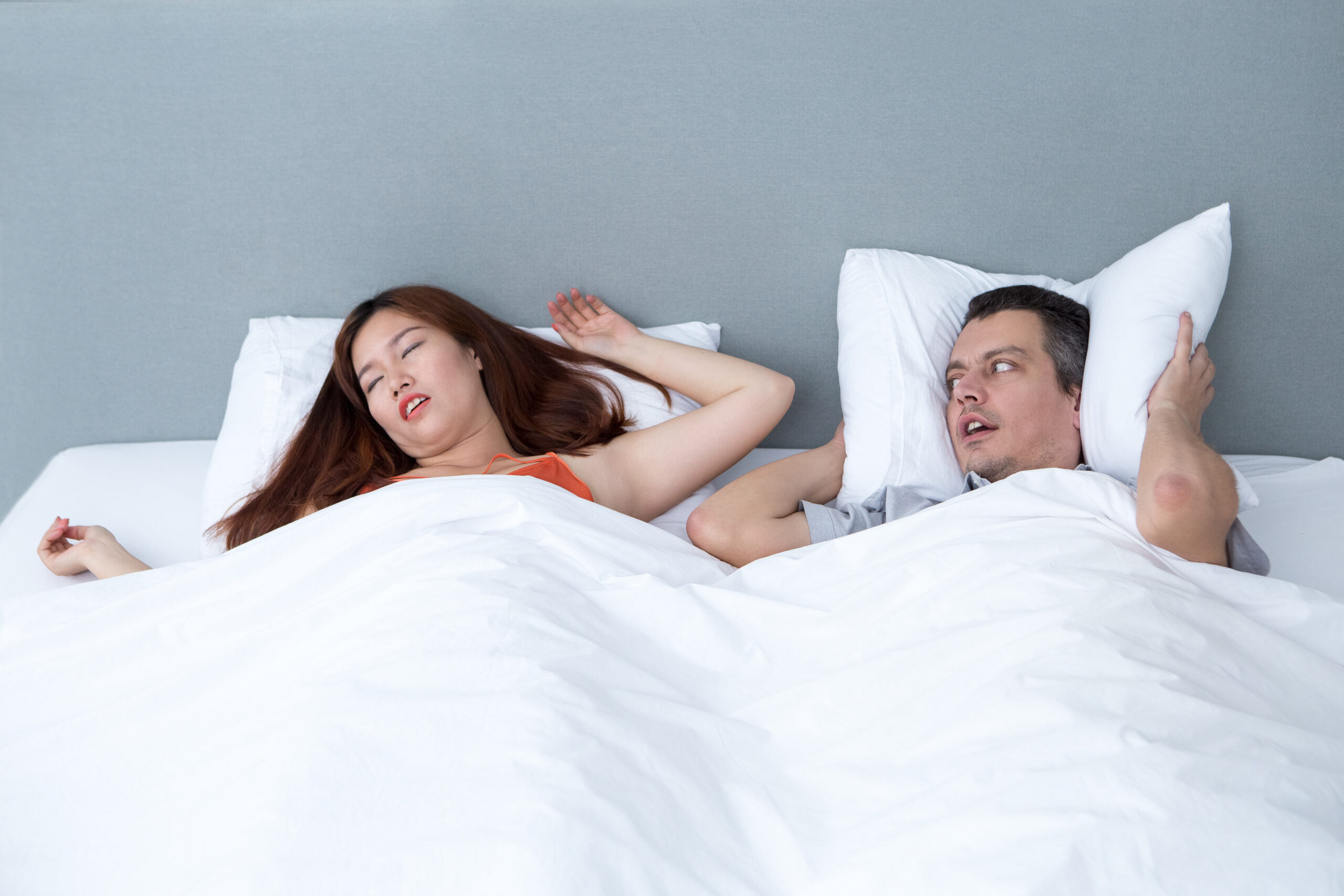Are you waking up unrefreshed, fatigued, and feeling worn out all day? If so, your breathing pattern at night may be the culprit as you may be experiencing symptoms of sleep apnea, a common medical sleep disorder that affects both men and women. But did you know that sleep apnea in women is greatly under-recognized and diagnosed? Researchers discovered that >90% of women haven’t had the proper evaluation for this sleep disorder. Sleep apnea, or more formally known as obstructive sleep apnea (OSA) is a common reason women have poor quality sleep. Let’s dive in and discuss the symptoms and diagnostic tests for OSA in women.
How to Recognize the Warning Signs for Sleep Apnea In Women
Sleep health is overlooked in the medical system and moreover in women. Symptoms of sleep apnea in women tend to be more subtle than in men. You don’t even need to have one of the most common symptoms of OSA, its namesake, observed breath holding during sleep aka apneas, to be diagnosed with this sleep disorder. Researchers have found that women under-report the classic symptoms of sleep apnea (snoring and gasping for air) out of shame for sounding “like a man.” Also women may not be aware of their breathing disturbances at night if they live alone or have a bed partner who is a deep sleeper. Be informed of the common symptoms of sleep apnea to take control of your sleep health and well-being:
- Snoring
- Gasping for air
- Witnessed sleep apnea
- Sleepiness during the daytime
- Unrefreshed by sleep*
- Morning headaches*
- Mood disturbances*
- Insomnia*
- Fatigue*
- Lack of energy*
*symptoms more frequently reported by women
Of note, snoring is not a requirement for sleep apnea and if you snore it doesn’t mean you have sleep apnea. To learn more about snoring check out this video → Why Do Women Snore?
What Causes Obstructive Sleep Apnea (OSA)?
OSA occurs when the muscles of the upper airway, typically the tongue and soft palate relax during sleep to a point where there is decreased airflow. When the airflow is limited the brain can consciously or unconsciously activate your muscles to strengthen which can lead to a gasp or snort during sleep when your airway opens. However, once you fall back asleep and the muscles of your upper airway relax, this process repeats itself leaving you feeling tired and drained in the morning from your brain constantly being aroused to help you breathe better.
Relaxation of the upper airway is made worse when you sleep on your back, drink alcohol prior to bedtime, or take medications such as: muscle relaxants, benzodiazepines, sleep or pain pills that affect the strength of your muscle tone which can lead to more disruptions in your breathing.
Going through menopause can increase the risk of developing OSA 2-3x more than someone who is pre-menopausal because changes in hormones, specifically lowered levels of estrogen and progesterone, are associated with more relaxation of the upper airway muscles. Excess weight, especially around your neck, can be another factor that is associated with OSA.
Don’t Ignore the Signs, How to Diagnose Sleep Apnea
With the advent of new diagnostic tools to measure airflow, lung movement, oxygen, and heart rate, sleep testing is easier than ever before. The following are two ways to diagnose OSA:
- In the comfort of your own home with a home sleep apnea test
or
- Attended by a sleep technician in a laboratory for an overnight sleep study aka a polysomnogram
A sleep specialist can help guide you through which option is best for you. If you have classic signs of OSA and have difficulty sleeping in new environments a home sleep apnea test would serve you well. However if your symptoms of OSA are subtle and you aren’t sure if you snore and haven’t been told you stop breathing when asleep, an in-lab test may be advised as it is more accurate to detect your breathing patterns than a home sleep study.
If you sleep alone or don’t know if you snore or have pauses in your breathing at night check out the following apps:
So why wait to improve your sleep quality?
If you are a woman who doesn’t feel recharged after a night of sleep it is time to visit the local sleep doctor to find out if you could have undiagnosed OSA. Don’t let this common sleep disorder keep you from having the energy and zest you deserve.
To find an accredited sleep center near you visit this directory from the American Academy of Sleep Medicine.
Stay tuned for part 2 of this series where you’ll learn the various treatments available for OSA.
If you’ve had a sleep study and OSA isn’t the reason for your exhaustion please check out this article, “Women Are Tired: 10 Medical Conditions Explain Why”
For more information about women’s sleep health and whole living please check out our other articles on www.sleephoria.com. Sign up for our newsletter and become a Sleephoria Insider, you’ll receive a weekly email and stay up to date on all our events and product releases.

Comments